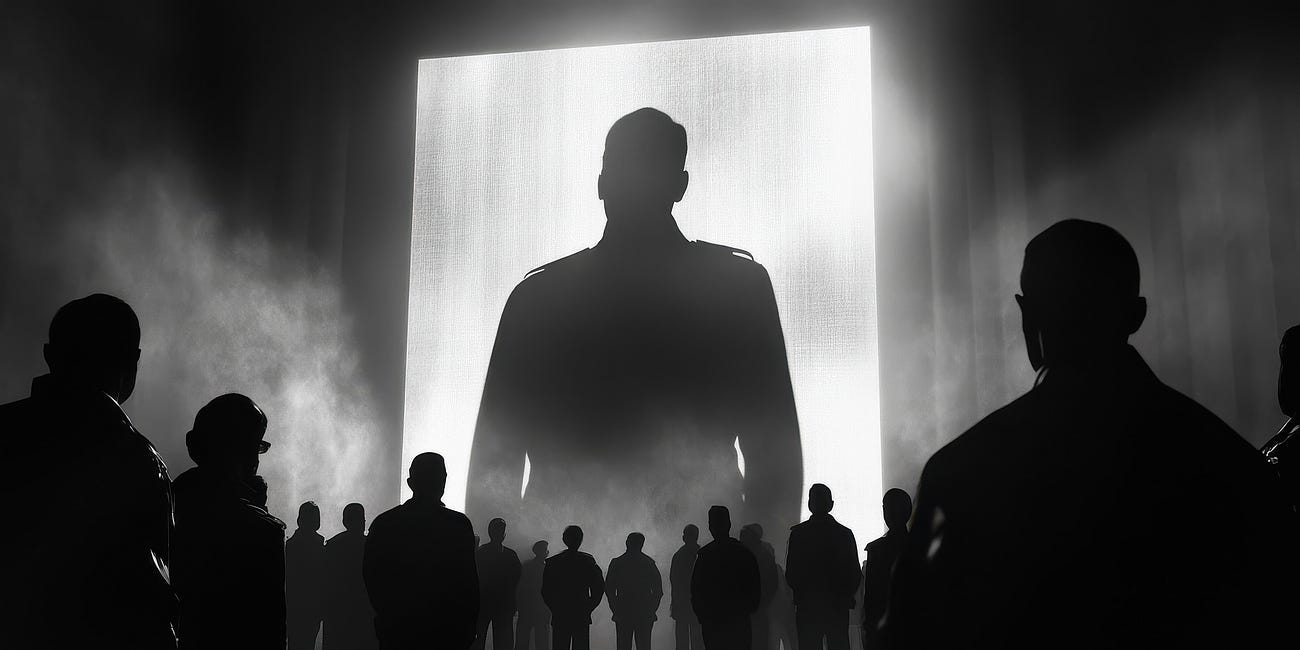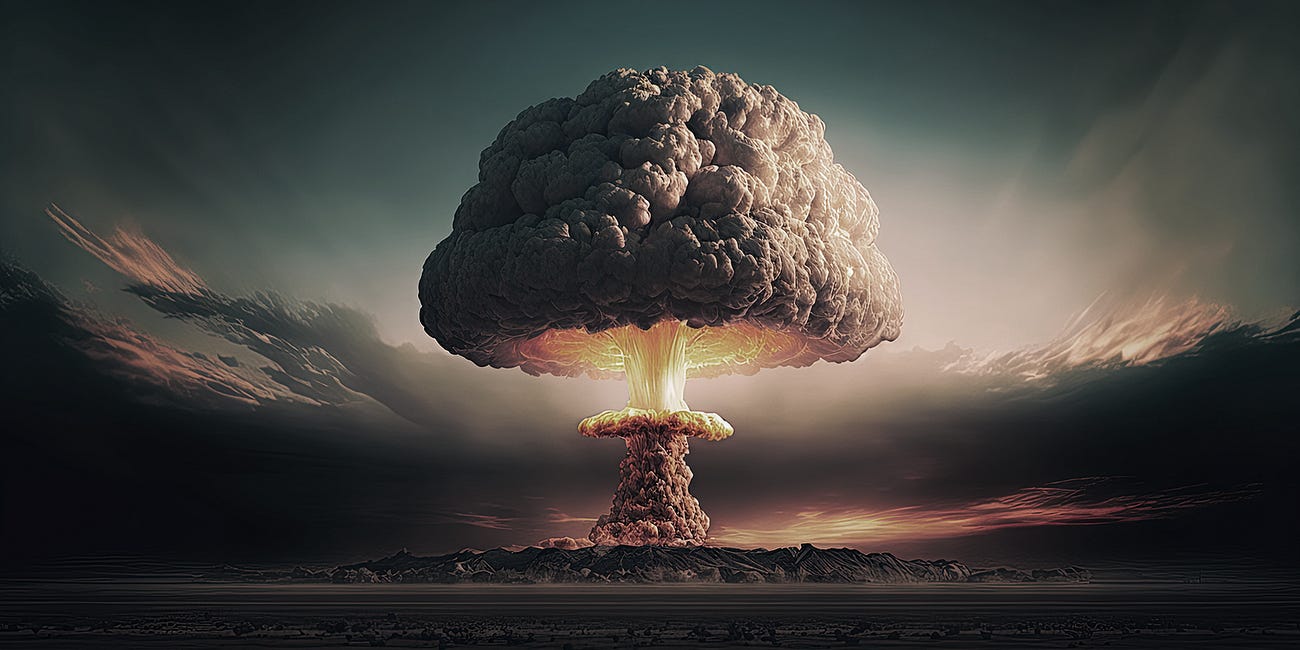Professional freaks, and the worlds they ruin
“When the going gets weird, the weird turn professional.”
In his book Fear and Loathing: On the Campaign Trail ’72, Hunter S. Thompson noted that “When the going gets weird, the weird turn professional.”
Over half a century later, I’d have to say that quote still pretty much sums up politics. (And that’s to say nothing of the loons acting as “influencers” on the doomscrolling fever-dream known as social media.)
It’s almost enough to make one feel truly nihilistic about the incipient dystopia descending upon our world.
Then again, maybe a little nihilism wouldn’t be the worst thing — and I say that with a great degree of caution, understanding that nihilistic frustration with the “status quo” might have been a bit of what brought our particular era of absurdity to fruition in the first place.
In 2022, The Santa Cruz Museum of Art & History held an exhibit exploring the art of Hunter S. Thompson’s political movement: Freak Power. I remember thinking at the time that many of the 1970’s cultural themes responsible for pushing Thompson into politics were not all that different from the sort of social behaviors and pressure-points driving modern discourse.
(As an aside, I also thought about how needed Thompson’s sharp-tongued gonzo style indignation is in our modern world of pedantic wannabe tyrants parading around as self-declared, norm-breaking defenders of American democratic values.)
As a quick reminder for those who might have forgotten about Thompson’s drug-driven dive into politics, here’s a quick refresher:
With a countercultural resentment growing against the sheriff of Pitkin County in Colorado, Thompson saw an opportunity to “stick it to the man” by grabbing a pack of Dunhill cigarettes and running against the incumbent sheriff in the 1970 election.
Running as a minor party candidate under his newly formed “Freak Power” political party, Thompson ran on a platform of decriminalizing recreational drugs, restoring environmental conservation, resisting the urbanization of Aspen, Colorado, and reforming use-of-force practices for law enforcement.
Thrown in among such relatively standard political ambitions were quintessentially Thompsonian eccentricities. For example, he wanted to rename Aspen “Fat City” in a bid to discourage corporate investors from buying up much of the surrounding area. He also (quite sensibly) promised not to take mescaline while “on duty” if elected.
Despite being a drug enthusiast and third-party candidate in a deeply rural Colorado mountain town, Thompson only lost by ~500 votes — and the broader national counterculture movement quickly embraced the Freak Power sentiment of his campaign as a sign of changing times.
From a creative and design perspective, Thompson’s foray into the political arena was masterful — even if it was a bit “freakish.” From the artwork used on his posters to the copy he used on campaign literature — copy written by himself in the same gonzo style that had earned him accolades as a journalist and commentator — it’s little wonder his “battle for Aspen” became a thing of national discussion.
The timing also helped to make his efforts noticed well beyond some little mountain town’s internal political class.
The cultural absurdity of the late 60s and early 70s made something as strange, unconventional and weird as Hunter S. Thompson’s particular brand of politicking a natural attraction for the masses. There was a sense that a “revolution” was upending American life — and a feeling that normalcy would be forever lost under the resulting rubble of the era’s social battles was palpable even among the non-freaks throughout the country.
As such, a little weirdness wasn’t really out of place — it was a refreshing and welcomed divergence from the sort of stuffy orthodoxy that dominated the dying and increasingly irrelevant upper echelons of the wannabe elites.
As it turns out, very little has changed since the days of bellbottoms and draft lotteries — as is evidenced by Donald J. Trump’s more recent Kafkaesque political rise over the course of the last decade.
True, Trump’s particular brand of freak is far different than that of Thompson. (I would argue far less desirable as well.) But I have to imagine that both men’s rise in cultural consciousness represents a sort of social lunacy that only really gains traction (let alone attraction) when there’s already a relative rarity of normalcy.
Simply put, the weirdness of our times is making the absurd more acceptable… And no, that’s not always a good thing.
For an idea of what I’m on about, consider the way edgy music, modern art or new-wave ideas become mainstreamed as time passes. For example, The Ramones used to be an anthem for social outcasts and rebellious punks desperately trying to peel themselves away from the “normies.” Today, their music is played on repeat in department stores and in elevators at corporate convention halls.
In other words, it's always just a matter of time until the freaks, punks and outcasts of yesterday become mid-level managers who wear stuffy oxford shirts and harbor an anemic sense of humor toward the unconventional.
And at first blush, this might reinforce that looming sense of nihilism I mentioned earlier.
After all, what I’m really saying here is that whether it’s Freak Power, Trumpism or any other weirdness I have yet to identify, we’re always in a state where there’s some countercultural norm-breaker making noise and (more importantly) changing our world — and not always for “the better.”
Indeed, it’s easy to get a bit depressed when one considers the possibility that politics has pretty much always been plagued by grifters, panic peddlers and pushers of radical narcotic-grade tribalism — and whatever freakishness descends upon us as a reaction to Trump will likely be even more norm-shattering than the delirium of our present moment. (After all, the Dems aren’t exactly proving themselves to be harbingers of social decency.)
So, how do we survive such perpetual decent into ever more poignant freakishness? Well, go “touch some grass,” as the kids say.
Live that part of your life that’s outside of such insanity. Build your future despite the Damoclean sword we’re being told is hanging over our head. Enjoy the freedoms, prosperity and opportunity that remain before us, because (despite the insanity) we live in stunningly glorious times.
And when the freaks in power continue their relentless bastardization of decency, how should we respond? Laugh at them.
After all, they won’t be around for long — and the damage they do (culturally or otherwise) will not last indefinitely. Soon they will be replaced by new freaks — an army of new attention-getters and radicals ready to right some wrongs (and write new wrongs) in the process.
In other words: Brace yourself for new absurdities, because that’s the natural state of the world — whether it’s 1970 or 2025.
Now, this isn’t to say there aren’t things deserving of our outrage in today’s world. Indeed, there’s a metric fuckton of issues about which we should be terrified, infuriated or indignant over in this era of inanity we find ourselves. For starters: inflation keeps creeping up, the White House is casually flirting with cavalier authoritarianism, and the world is clumsily stumbling into a new, increasingly volatile, world order.
But allowing such harrowing cultural or political developments to erode our joy in life is to willfully light the fire underneath the heroin-spoon of partisan bullshittery.
Or, to paraphrase Thompson himself: life tends to improve immeasurably when we stop taking it too seriously. So, let’s allow the weird to “turn professional,” and focus more on our own lives than the popularity of the ludicrously vacant ideologues clogging our social media timelines.
After all, some brand-new set of freaks will eventually run those newly minted professionals out of business and, in no time, we’ll have an entirely fresh set of reasons to fear the decaying state of current events.
Michael Schaus is a communications and branding expert based in Las Vegas, Nevada, and founder of Schaus Creative LLC — an agency dedicated to helping organizations, businesses and activists tell their story and motivate change. He is also a regular opinion columnist.
From the archives:
Tariffs, storytelling and the cult of personality
While trying to decide between an American lager or dive into my limited stockpile of Mexican Tequila to make a Paloma, I began to wonder what, exactly, I was being “liberated” from with the Trump Administration’s avalanche of new tariffs.
Is it ‘the end times’ yet?
If your candidate lost last night, I’m here to assure you the world isn’t about to end. And if your candidate found themselves on the winning side of last night’s red wave… well, let me be the harbinger of bad news:




